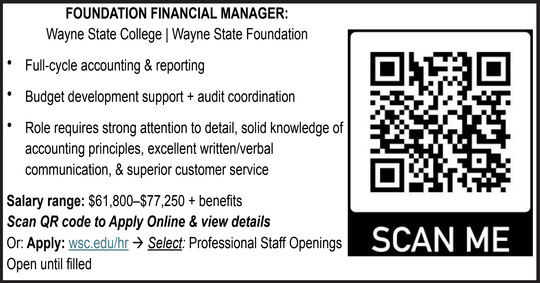Investor Alert: Scammers Are Targeting Seniors
(By Claire McHenry Deputy Director, Bureau of Securities, Nebraska Department of Banking and Finance) “An 83-year-old Lincoln woman lost more than $14,000 in a text message scam known as ‘smishing,’ according to Lincoln Police.”
This is the lead from a recent news story that probably went unnoticed by many Nebraskans. But for the woman who lost her savings — and countless older Americans like her — it represents a painful and personal financial crisis. The lost funds were likely needed for essentials like health care, housing, or food.
Sadly, stories like this have become far too common. In 2024, Americans aged 60 and older experienced a combined $4.9 billion in losses to scams, according to the FBI – up from $3.4 billion a year earlier. The average loss per case was an astounding $83,000.
Isolation Increases Risk
In recognition of World Elder Abuse Awareness Day on June 15, the Nebraska Department of Banking and Finance (NDBF) is alerting residents about the devastating financial impact that social isolation can have on older individuals.
Isolation, whether involuntary or voluntary, can be an open invitation for financial fraud. Seniors who aren't interacting regularly with neighbors, friends, and family often turn to online sources as their primary means of socializing, shopping, and financial transactions. These individuals are also more likely to engage with scammers and lose money.
To make matters worse, fraudsters often strike when seniors are more vulnerable, like following the death of a loved one or after a major health episode. Scammers will often gather personal details from obituaries and social media, then use this information to target victims.
Protect Seniors in Your Life The best way to prevent senior fi nancial fraud is by keeping individuals socially and mentally engaged, especially if they’re physically limited. Key steps include: Stay Connected: Keep in touch with older family members, friends, and neighbors. Call or visit regularly. If they have the technology, send them a text or email, or connect through video conferencing.
Share Information: Let older family members know that scammers use different methods to exploit seniors. Provide updates on the red flags of fraud and common scams targeting older individuals, such as those identified by the Federal Trade Commission.
Take Action: Those who suspect investment fraud or financial ex ploitation should contact the NDBF and local Adult Protective Services agencies.
Resources to Fight Fraud Knowledge is power when it comes to fighting scams. Fraudsters thrive
on ignorance.
For more guidance on combating fi nancial fraud aimed at older residents, explore NDBF’s “Make Cents Make Sense” initiative at MakeCentsMake-Sense.Nebraska.gov. The website’s “Protect Your Money” section offers information on how to avoid financial fraud and recognize common scams.
The site also features handouts that spotlight signs of senior exploitation, as well as what to do if you’re already a victim.
Again, if you suspect fraud or finan cial exploitation, contact the NDBF at (402) 471-2171 or file a complaint at ndbf.nebraska.gov. The department can help investigate, recover funds, and work with law enforcement. We’re here to help.







